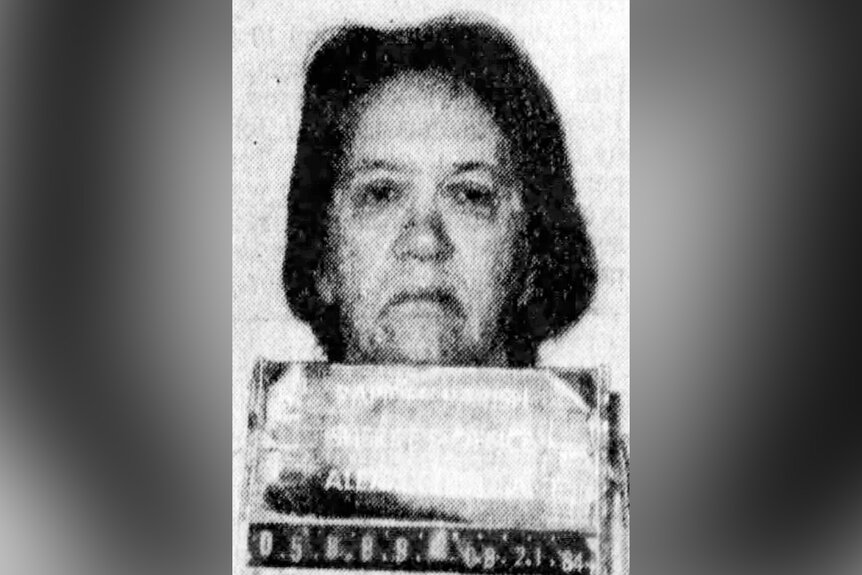Create a free profile to get unlimited access to exclusive videos, breaking news, sweepstakes, and more!
Louisiana Church Lady Preyed On Men And Poisoned Them With Arsenic
Multiple men involved with Lynette Bell died over a period of 10 years. What was going on?
From a distance, Lynette Bell appeared to simply be a devout church-going widow eager to take in and help men who were down-and-out.
But a closer look revealed a darker reality, as seen on “Black Widow Murders,” airing Sundays at 7/6c on Oxygen.
Lynette’s deadly web was exposed in May 1984. She and her daughter, Susan, had gone to the Pineville, Louisiana police station, so Lynette could report her live-in friend, Mountville Townley, 43, had died at her apartment after a night of drinking.
A manual laborer known around town for hard living, Townley was a heavy drinker with cardiac issues. Lynette said he died of a heart attack.
At her residence, investigators found Townley’s body in a scene that looked staged. Why was a whiskey bottle hidden behind a couch? The coroner’s report raised other red flags. It noted that Townley’s beard and hair were singed.
Police learned that earlier that month, 64-year-old Lynette’s house had burned down, which is why she was living in the apartment. Fire officials had said that there were possible signs of arson at Lynette’s razed house. Was Townley involved in the residential blaze? Although he wouldn’t directly benefit from insurance payouts, Lynette would.
Investigators considered this as they took a deep dive into her background to determine what had happened to Townley.
Born in 1919, Lynette was an only child with a seemingly storybook upbringing. According to Lynette, however, her father was abusive and an alcoholic, as seen on “Black Widow Murders.” Forensic psychologist Helen Smith told producers that dynamic could have helped forge Lynette’s relationship patterns with men.
Lynette married Arnold Guy in 1940 and had two children. Over time, their marriage began to sour. In 1948, Arnold decided to build a new house and Lynette fell in love with the contractor, Venson Bell. An affair ensued, along with a quickie divorce between Arnold and Lynette.
Lynette married Bell in 1950. She gave her two children to her parents to raise, according to Diedre Guy, Lynette’s daughter-in-law. Meanwhile, Lynette and Venson had two daughters of their own, Debbie and Susan.
In the early 1970s, Lynette hit a rough emotional patch. She lost her mother, husband, and father in quick succession. Her behavior changed, and she began frequenting bars.
“It was like daylight and dark,” Diedre Guy told producers of the personality shift.
She seemed to find love again, though. In November 1975, Lynette married William Johnson. Six months after they tied the knot, he collapsed in a bar where he was drinking and playing pool. Johnson’s cause of death was deemed a cardiac event.
There was no investigation at the time because no one observed a pattern, according to Smith: “It was just an isolated incident.”
Lynette subsequently shared her life and home with Ira Butter, a Navy veteran. They broke up in January 1977. Butter, whose family had a history of alcoholism, was found dead three months later. The death was attributed to alcohol poisoning, according to “Black Widow Murders.”
In December 1977, Lynette wed again, this time to hard-partying local fisherman Tanzy Clifford Reeves, who had had various scrapes with the law.
Around this period, rumors started to circulate that men Lynette married and dated kept dying because of poisoning, Cliff Strider, prosecutor for Rapides Parish, told producers. Some of those reports came from Reeves himself, who wondered if Lynette was poisoning his pea soup. But he never made a formal complaint.
In November 1979, Reeves fell ill and died. Despite his concerns about poisoning, the cause of death was said to be congestive heart failure.
Reeves was the fourth man in Lynette’s life to die in less than eight years. However, Venson Bell’s modest pension provided the only financial gain for her from these tragedies.
In 1981, Lynette befriended an elderly couple from church, Earl and Blanche Campbell. Blanche began suffering from a mysterious illness and died of apparent natural causes.
Rumors swirled that Earl and Lynette were a couple. Earl moved in with Lynette, and by September 1982 he was dead, the victim of a self-inflicted gunshot. His death was ruled a suicide. Lynette inherited his house, boat, truck, and other possessions.
Ten years, six deaths, several of them mysterious. To detectives investigating the death of Mountville Townley, a pattern emerged. Lynette hitched herself to people with alcohol and chemical dependencies and then nurtured those needs to her advantage, said Strider.
None of the six deaths were formally investigated. But Townley was found to have 30 times the normal arsenic level in his body. Traces of arsenic were found in the whiskey bottle that had been stashed behind a sofa.
Why would Lynette want him dead? Greed, investigators concluded. There was a $10,000 insurance policy on her home, and Townley helped her burn it down. She poisoned him so he wouldn’t tell anyone, they theorized.
Investigators had enough evidence to arrest Lynette. Before they did, Lynette's daughter from her relationship with Venson Bell, Debbie, told them her mother had poisoned others as well with arsenic.
Exhumations would be needed to confirm arsenic poisoning. On July 12, 1984, Pineville police opened the graves of Clifford Reeves, William Johnson, Ira Butter, Blanche and Earl Campbell, and Venson Bell. Most of the coffins were not well preserved. But medical examiners determined that Reeves died of arsenic poisoning. Earl Campbell also had lethal arsenic levels in his system.
Results on the four other bodies were inconclusive.
Police arrested Lynette Bell on August 21, 1984. She was charged with the second-degree murders of Townley and Reeves and attempted murder of Earl Campbell, the Associated Press reported. Although Campbell died by suicide, being poisoned may have led him to that, they argued.
Each charge was tried separately. The court proceedings were finally set to start in September 1988, but Lynette entered a guilty plea.
She was sentenced to 21 years, although she only served nine years in prison. She was released in 1998 on good behavior and failing health. She died not long after her release.
To learn more about the case, watch “Black Widow Murders,” airing Sundays at 7/6c on Oxygen.



















